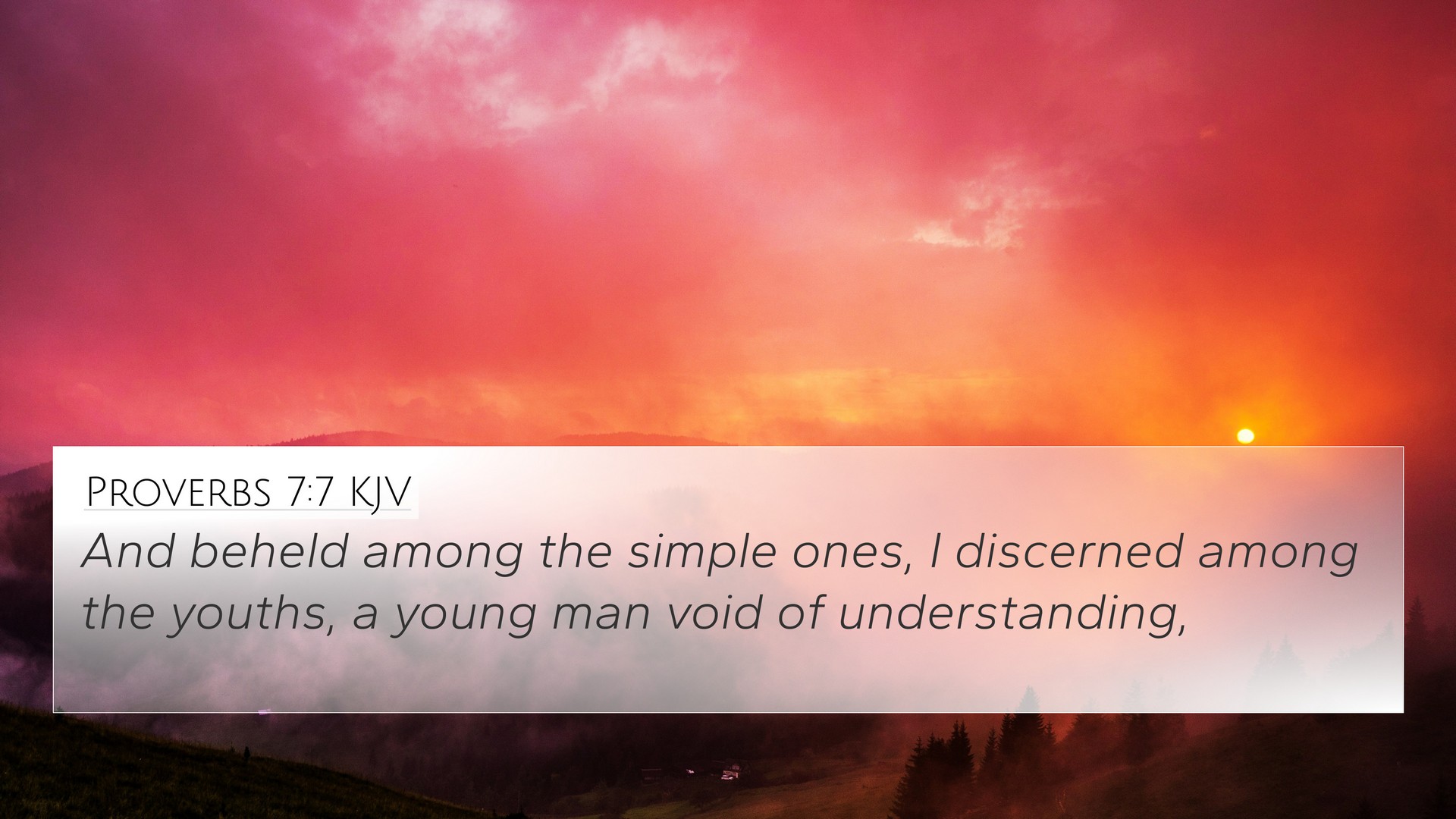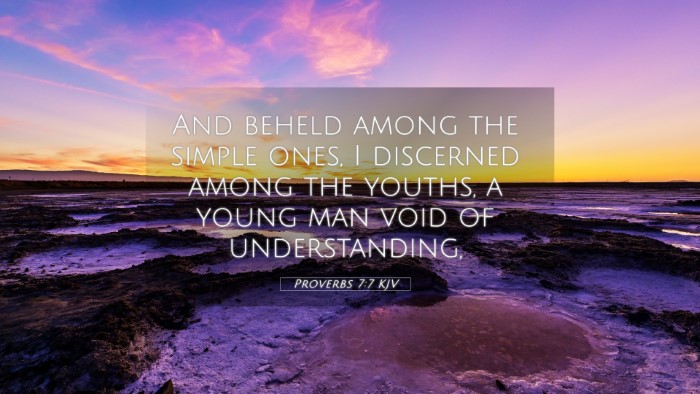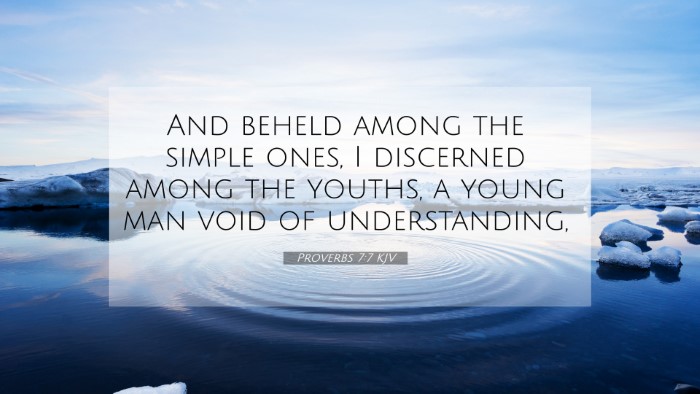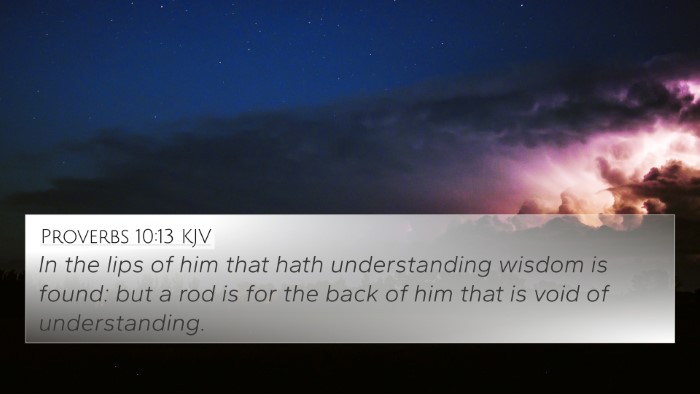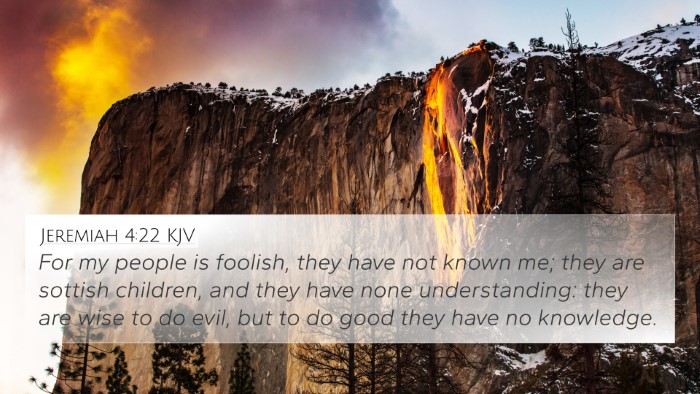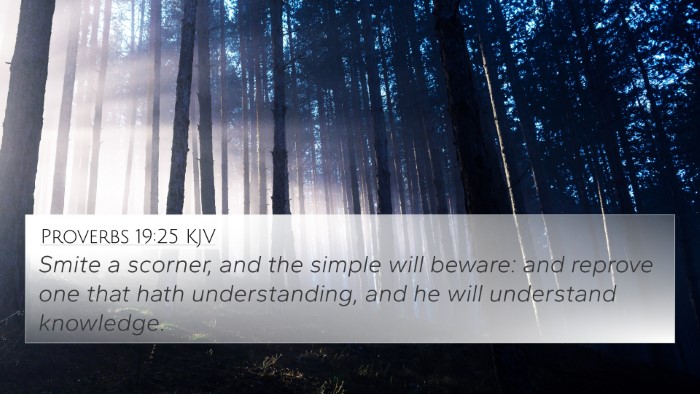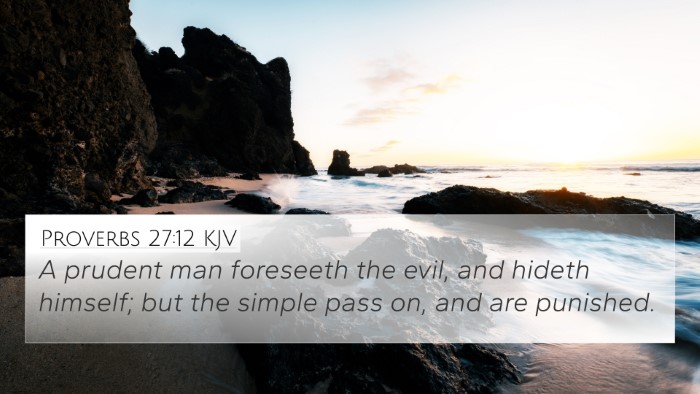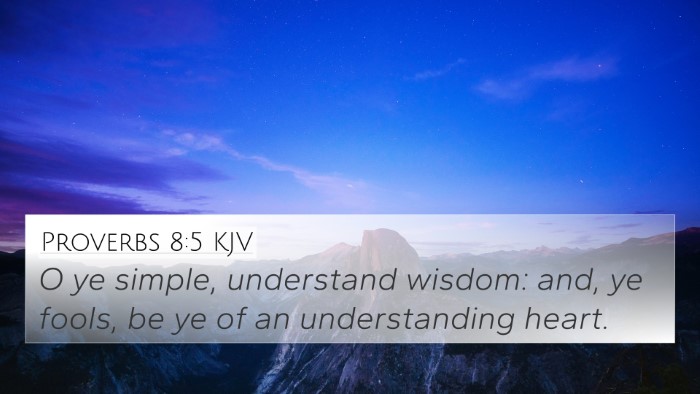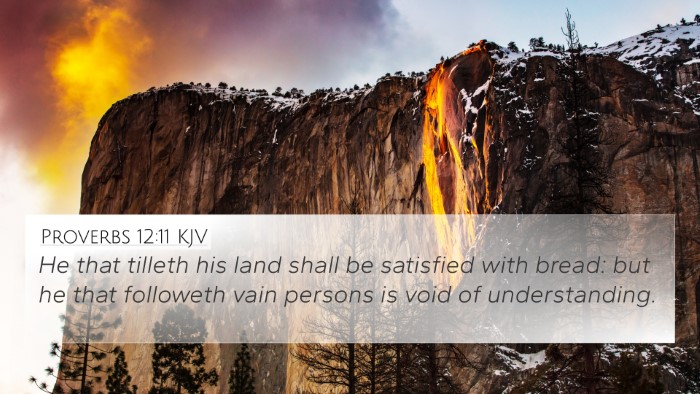Understanding Proverbs 7:7
The verse Proverbs 7:7 states:
"And saw among the simple, I discerned among the youths, a young man void of understanding."
Overview
This verse illustrates the keen observation of the writer regarding the behaviors and characteristics of a young man lacking wisdom. The expression "void of understanding" signifies an absence of discernment, a crucial quality in navigating life wisely. The writer emphasizes the need for vigilance and insight in recognizing foolishness, particularly in youth.
Commentary Insights
- Matthew Henry:
Henry reflects on the folly of youth, suggesting that young men often lack the maturity and prudence that come with experience. He points out that this young man's behavior serves as a warning against the perils of ignorance and the importance of seeking wisdom from God.
- Albert Barnes:
Barnes elaborates on the characteristics of the "simple" and "youths," defining them as individuals who are easily led astray due to their lack of knowledge. He warns that carelessness in youth can lead to significant consequences in later life, stressing the importance of being proactive in gaining understanding.
- Adam Clarke:
Clarke emphasizes the necessity of discernment, suggesting that the young man's inability to evaluate situations renders him vulnerable. He also discusses how engaging with wise counsel can protect one from the pitfalls of life.
Lessons from the Verse
Proverbs 7:7 teaches several important lessons:
- The Need for Discernment: Understanding is essential for making wise choices.
- The Dangers of Simplicity: Being simple or naïve can lead to exploitation.
- The Influence of Counsel: Seeking wise counsel can help avoid folly.
- The Importance of Vigilance: Watching for the signs of ignorance can guide better decision-making.
Cross-References
This verse connects to several other Biblical texts that provide greater insight into its themes:
- Proverbs 1:7: "The fear of the Lord is the beginning of knowledge: but fools despise wisdom and instruction."
- Proverbs 13:20: "He that walketh with wise men shall be wise: but a companion of fools shall be destroyed."
- James 1:5: "If any of you lack wisdom, let him ask of God, that giveth to all men liberally, and upbraideth not; and it shall be given him."
- Proverbs 19:2: "Also, that the soul be without knowledge, it is not good; and he that hasteth with his feet sinneth."
- Proverbs 9:6: "Forsake the foolish, and live; and go in the way of understanding."
- Proverbs 4:7: "Wisdom is the principal thing; therefore get wisdom: and with all thy getting get understanding."
- Ephesians 5:15: "See then that ye walk circumspectly, not as fools, but as wise."
- Proverbs 22:3: "A prudent man foreseeth the evil, and hideth himself: but the simple pass on, and are punished."
- Proverbs 14:15: "The simple believeth every word: but the prudent man looketh well to his going."
- Matthew 7:24-25: "Therefore whosoever heareth these sayings of mine, and doeth them, I will liken him unto a wise man, which built his house upon a rock."
Conclusion
Proverbs 7:7 serves as a poignant reminder of the importance of understanding and discernment in the life of a believer. By recognizing the qualities of wisdom and the dangers of ignorance, one can navigate life's challenges more effectively. Connecting this verse with others throughout the Bible enhances its meaning and offers a comprehensive view of God’s instruction regarding wisdom, particularly in youth.
Exploring Bible Cross-References
Utilizing tools for Bible cross-referencing enriches one’s study of Scripture, leading to a deeper understanding of thematic connections and verse parallels. A Bible concordance or a Bible cross-reference guide can facilitate the discovery of relationships between verses, enhancing personal study and sermon preparation. By engaging in a comparative Bible verse analysis, one can identify consistent principles revealed throughout the text, allowing for a greater appreciation of God’s message.
For those seeking to understand the connections between Bible verses, identifying cross-references opens the door to inter-Biblical dialogue. This endeavor encourages a comprehensive understanding of Scripture and its cohesive narrative, reminding all believers of the value of wisdom, reflection, and counsel in their spiritual journeys.
